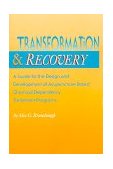Resources for Acupuncture in Chemical Dependency Treatment and Recovery

Is acupuncture safe? What are the liability issues? Is there increased risk of spreading infectious disease?
Acupuncture probably has the least risk of harm of any intervention that is done in the drug treatment setting. Virtually the only (and extremely rare) liability suits brought against acupuncturists in general have involved body needling at too great a depth - a clinical practice that would not apply to drug treatment protocols where only very "shallow" ear needling is used.
There are two risks to manage. The first is presenting acupuncture to clients as more than it is - for example a "cure" for addiction. Signed Client Consent forms should clearly state the limitations of acupuncture. For example, "acupuncture treatment has shown through experience to be helpful in relieving post-acute withdrawal symptoms such as sleep problems, anxiety, and depression. I (the client) realize, however, that no guarantees have been given me regarding cure or improvement."
The second risk is what is known as "double stick," when someone is accidentally stuck by a needle that has been in the ear of a person with a blood-born disease. Programs that follow the safety protocols and guidelines described in the book Transformation and Recovery In these guidelines, pre-packaged, disposable needles are strongly recommended over "autoclaved" needles that are sterilized on-site and re-used.
Programs should of course have liability insurance. Acudetox specialists - in States where they are allowed - may be covered by special and reasonable liability policies now available from most acupuncture liability carriers. Licensed acupuncturists working in medical facilities will generally be covered under the agency's medical malpractice insurance. Acupuncturists working in non-medical facilities will need to carry their own liability/malpractice insurance. They can name your agency as "additionally insured" for a typical additional 10% of their annual premium, which the agency may want to defray. A typical cost in these latter cases would not exceed $120 annually.
previous
- Read FAQs in Sequence - next
Index of Articles - Links - Home
Scroll down for more FAQs
How many clients can be treated at once?
How often do clients need to be treated?
How long to clients have to keep having treatments?
Does it matter what time of day the acupuncture is provided?
What
national organizations support acupuncture in treating addiction? What
resources are available to support us if we decide to do it?
Does
the acupuncture program have to include herbs or nutritional supplements?
What
is the history of how acupuncture began to be used in chemical dependency
treatment?
What
does the acupuncture clinic look like exactly?
How
much space and extra equipment will we need to do it?
How
do we clean or dispose of the needles after they are used?
How
does acupuncture fit with drug testing?
How
do we find and train people to do the needling?
Could
we just try it experimentally to make sure it's a good fit for us?
What
technical assistance will be required to start and maintain an acupuncture
component?
Is
it compatible with harm reduction?
Is
it compatible with 12-Step or abstinence-based treatment approaches?
Is
it appropriate for mandated or court-referred clients?
Is
it appropriate for adolescents?
Is
it appropriate for pregnant women?
Is
it appropriate for people with co-morbid psychiatric problems?
Is
it appropriate for people with HIV/AIDS?
Is
it appropriate in methadone programs?
Is
it appropriate in residential programs?
What
training is required for current program and administrative staff?
What are the steps we should take to add an acupuncture component?